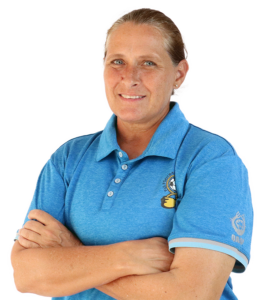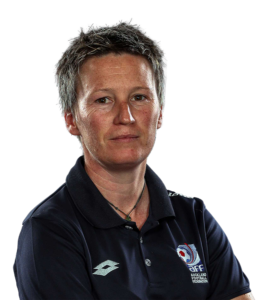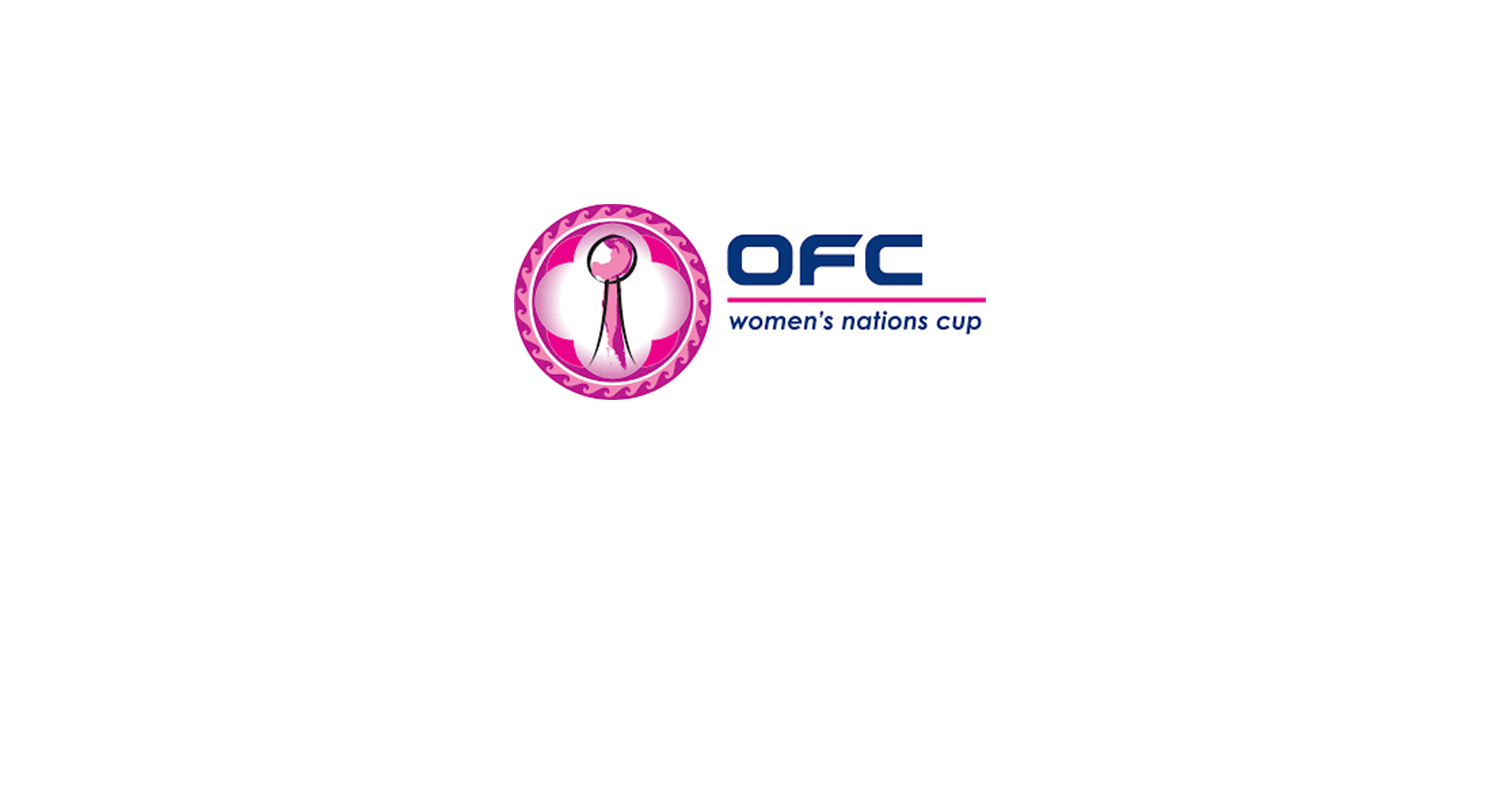While most of Europe is gripped by the European Championships being held in England right now, around the rest of the world, national teams everywhere are vying for a spot at the newly-expanded 32-team World Cup to be held in Australia and New Zealand next summer.
The Euros don’t act as a qualification method for European teams, though everywhere else an array of continental competitions currently not only leave a trophy up for grabs, but a direct ticket to the likes of Sydney, Melbourne, Brisbane, and Auckland next summer.
Whether it be the Africa Women’s Cup of Nations or the CONCACAF W Championship or the Copa América Femenina, all these tournaments will currently send teams to next summer’s tournament rather than a separate set of qualifying matches.
There is, however, one other tournament this summer. Perhaps the one with the smallest fanfare given the lack of development outside the major nations, but one that holds extra intrigue given what’s at stake this summer.
That is the OFC Women’s Nations Cup, Oceania’s primary tournament, heading into its 12th edition which starts on July 13, with every game being held at the same venue in Suva, Fiji.
The extra intrigue comes from the fact that nine of the previous 11 editions were won by either Australia or New Zealand, with Chinese Taipei winning in 1986 and 1989 when they were part of Oceania.
But with both of Oceania’s leading teams qualified automatically as hosts, that leaves nine of the smaller island nations to fight it out for not just the right to a first major trophy, but the chance to at least go into the intercontinental playoffs to potentially reach a World Cup for a first time.
Oceania doesn’t get an automatic berth, but the playoff spot has so often been taken up by New Zealand, a nation with far more resources, infrastructure, and a larger player pool than the nine now competing to take their crown.
Those involved will be hosts Fiji, along with Tonga, Cook Islands, Samoa, Papua New Guinea, Tahiti, Vanuatu, New Caledonia, and Solomon Islands.
With the tournament delayed on several occasions due to the COVID-19 pandemic, federations have been rushing to put things in place to compete, safe in the knowledge there is more at stake than ever before, and hosts Fiji hired experienced U.S. coach Lisa Cole to, with the team ranked 69th in the world, one of the favorites for the title, after reaching the final in 2018.
“Success always drives development, you’d think it would be the other way around, but ultimately in the women’s game we have to find success first and then more resources will come,” said Cole.
“I got here in February, but we hit the ground running. We went into Australia and had some games, but since April we haven’t had games. We played Tonga a few nights ago, but that’s almost three months without games and I don’t know how you develop the game without playing matches. The national team needs to be playing games consistently.
“I think there has been more investment this year because everyone knows there will be a new winner, but the federations need to know I don’t ply my craft consistently, we’re not going to get results. We play Cook Islands right before the tournament because I don’t have a measuring stick for where we are. We’re training hard, but as far as football goes, we have no idea.”

If Fiji is to triumph and reach the intercontinental playoffs, it may be Papua New Guinea who stand in their way.
A much larger nation, Papua New Guinea is now ranked just inside the top 50 nations in the world and have reached the final three times, in 2007, 2010, and 2014.
Another nation that has hired a new head coach ahead of the tournament, their fate is in the hands of experienced English-born coach Nicola Demaine, who coached the nation’s Under-15s side previously, as well as a period as the Women’s Football Development Officer at OFC.
Demaine arrived in Papua New Guinea on Christmas Eve last year after an initial meeting about the job in September.
Several of the players in the senior squad now were part of the U-15 side Demaine worked with several years ago, and as someone formerly tasked with the development of the women’s game in Oceania, Demaine is well placed to discuss its challenges.
“It’s not just about New Zealand, there’s also an opportunity because the World Cup has been expanded,” she said. “I don’t know what it will be like. It might be horrendous because of the disparity between teams, 32 teams is a massive gamble but also a massive showing from FIFA that they want to back it. You can see nations are looking at that chance now. Tahiti have been off to Europe to play games, teams are going out to employ new coaches, it’s definitely making people stand out and take notice.
“We had a camp in February and the first thing we talked about was what could we take from the past to keep in our future, to honor them and fill their shoes. Fidelma [Watpore], one of our goalkeepers, she led some of our discussion on that. They came up with some really good things, it was around togetherness and unity. There’s always been support from the federation, it’s a struggle for a lot of the Pacific nations, even in men’s football, so you can imagine it in women’s football.”
Papua New Guinea and Fiji are relatively lucky in that they are two of the more well populated nations taking part in the tournament, and have access to a larger player pool than most, contributing to their higher rankings and tags as potential favorites to lift the trophy.
The fact both face logistical challenges on a daily basis, though, shows just how tough life is for others in the competition.
“One would be player identification,” said Cole. “I’m not even sure I’ve seen all our best players. We have only six teams in our Super League. One is from Mombasa, which is a smaller island; if you are from any other island you probably weren’t scouted, because I certainly haven’t had the time to as I needed to put a team together very quickly.
“Then it’s getting them together. I just came from Antigua where we could send a bus around the island, pick everyone, train, then drop them off again. Here, you can’t do that. Right now, the main thing has to be about coach education. We have two or three teams who dominate everybody. Those coaches go out and grab the best players and beat everyone, so there’s no real training, there’s a culture of boozing it up between games and then playing games. That’s not an environment where you will grow the game. League development, coach development, and a player identification program. I’m not sure yet we have all the best players. They bring people in like myself a little bit too late. Put the players in front of me and I’ll get the best out of what I have, but do we have all the best players in Fiji? I don’t know.”
As someone with extensive knowledge of football at the highest level, having worked in the National Women’s Soccer League and around the U.S. Women’s National Team setup, Cole is well placed to offer the best feedback to Fiji, and she continues to discuss how Oceania can move forward in the hope of having just more than New Zealand as its representative at future World Cups, admitting a plan needs to be in place for tournaments to come, not just 2023.
“It always starts with the people on the ground,” she said. “It starts with the coaches, the FAs, we throw this word around a lot, ‘development,’ but what does it actually mean? It can’t be a one-off moment, it has to be a plan for year one, year two, year three, et cetera, if Fiji, PNG, New Caledonia want to get themselves to a World Cup. And I think Oceania deserves two spots in the next World Cup because I don’t think nations here will develop until they get that.
“You see the growth in Costa Rica and Jamaica, it springboards countries. Here, the rugby history, having someone do it for the first time inspires others to do that task. It’s really important we find a way to have consistent training, consistent games, but it starts with the youth. Where are we going to be in four years? I have younger players who are the better footballers in some ways. They don’t have the mindset yet, but they’re coachable, but what are we going to do with those players between now and the next World Cup? The country that works that out is where the money is going to go, because they will get that spot if it comes up. Our players are going off in those cycles and doing other things instead, their careers are ending too early.”

Through her work in the country previously and her role as OFC Women’s Football Development Officer, Demaine is also one of the best placed coaches in the competition to judge where the sport is at in OFC, and she also has the slight luxury of potentially being able to go and recruit from other countries.
“In the past they had a really good league, but before COVID they restarted the national league and that’s been really good. It had to stop, but it started again in March and that’s good because they’ve been training again, playing every week up to the OFC Cup and that’s massive for us. Some are based here, we are looking at a player in the U.S., one in Australia. About 11 of the girls on camp were already in Port Moresby and a couple more came down, so it’s like training a club team. I could train a good group of 14 or 15 which has been really helpful.
“One of the first things I set was a conditioning program, that’s one of the most important things. We’re lucky to be able to engage with coaches at the sport federation and they are creating individual programs for players. There’s been just enough time to get some physical development in that area. We’re ranked 49th, but we need to move that number up if we want to be a senior team. I always want to play more games, use more video of our games we can use for learning and developing. The biggest thing is putting them all in one place for a camp, giving them one-to-one video analysis. It’s a small amount of time, but we had a plan to make the most of it.”
Having spent several years helping to develop the sport across all Oceanic nations, Demaine agrees with Cole’s assertions that the confederation can’t get bogged down solely in the excitement of hosting the World Cup next summer, and needs to ensure young players coming through have the opportunities to compete at future tournaments for years to come.
“It’s on the right path, but there’s the whole ‘if you sit there you’ll get run over’ thing,” she said. “It needs to be grown more purposefully at the bottom. We’re having conversations about the U-17s, the U-20s, and that group between the U-20s and the first team.
“Where will those U-17s be in 10 years’ time? That’s the key thing. Yes, we can throw money at it, but we need to be able to inspire the young ones and give them the opportunity to play. To be able to support Australia and New Zealand, our girls will see that and want opportunities, how we give them to them is the biggest question for the Pacific federations.”
While Demaine hopes her players and players around the continent will be inspired further by the opportunity to go to a World Cup, Cole is more circumspect given the tournament only offers the opportunity of a playoff, something which will be very tough to navigate for any OFC nation, given only three teams out of 10 from various confederations will reach the World Cup.
“It will open up opportunities for players. I’ll be interested to see how people respond. Our aim is to win the cup, but so is everyone else’s and I’d say there’s four or five teams who have a chance. It will be about who recovers best, who has invested in training, but will nations invest if it means only going to the playoff games? I know it will be a huge accomplishment, but you’re talking about facing some of the best teams in Asia or Africa. They have so much more experience.
“It won’t be the World Cup, so do the associations and the public go, ‘Yeah, it’s worth it’ or not? Fiji goes to the Olympics, so they can get behind the women’s rugby team, but if we are only going to a playoff game, is that really enough to drive investment? I will view it as an accomplishment because it would be a huge accomplishment and it will be an eye-opener for the players. We played the Philippines and I could tell they were going to be good, they are really driving things forward. That’s investment, longer term investment, rather than hiring a coach six months out from the competition and hoping for something to happen.”
Demaine also references the success story of the Philippines, who have qualified for the tournament for the first time under Australian head coach Alen Stajcic, as a potential inspiration for her players too, given their proximity in geography, even if not in the same confederation.
“I had a couple of players message when the Philippines qualified, so they are following it and they are seeing there are opportunities. I don’t know what other coaches are thinking, but I’m already thinking about what can we do this campaign to prepare players for the next one in 2027. Camps, training, players coming through. Look at Australia, they have a lot of older players, you have to think a campaign ahead.”
Whether either coach remains in OFC beyond this tournament remains to be seen given their standing in the world game, but both are very much planning ahead, even if it’s more for their players than it is for them personally.
With Fiji the hosts, extra attention is being given to how they can succeed in front of their home fans, and Cole is trying hard to change the culture first and foremost to a more professional environment.
“One is our nutrition. What are we giving them as fuel?” she said. “Regular hydration, getting them to buy bottled water because they’re used to tap water. It’s little things like that, constantly asking for bottled water. How we cook our food, not frying it or throwing it in a pot with some oil. We’ve talked about things like that. We’ve talked about recovery, getting a snack, little things that make a big difference.
“Player welfare too, how do they control their emotions and deal with pressure or anxiety? We’ve tried to bring in as many things as we can, but not force it down their throats. I’ve been here six months, it’s been more about trying things and seeing how it goes. Everyone is different. Some people just relax, some people put their music on, so it’s just about giving them the tools if they want one. Our first camp, we’d be on the field at 3:30 p.m. and they’d be sleeping until 3:25 p.m., so we’d talk about that, making sure players had their nap if they wanted one, but they were up at least half an hour before training.”

